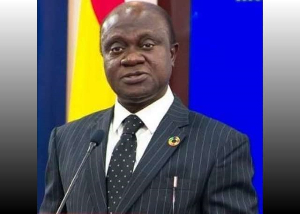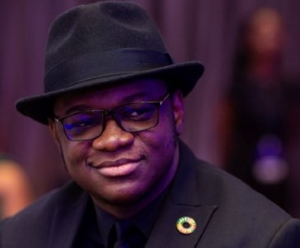Five years ago, today, current Chairperson of the Electoral Commission, Dr Jean Mensa, then the Executive Director of the Institute of Economic Affairs, amplified a call for state sponsorship of political parties.
The call for state sponsorship of political parties was contained in recommendations given by the IEA Advisory Committee on its Winner Takes All (WTA) project to the Constitutional Review Committee (CRC).
The WTA project sought to lobby against the practice whereby positions are given to only members of a winning political party.
Proponents of state sponsorship of political parties also believe that it is a good way to fight corruption.
Read the story orginally published in 2015 by GNA below
The Institute of Economic Affairs (IEA), has called for state sponsorship of political parties in an effort to ensure transparency in their funding and monetary activities.
"There should be public funding of political party activities in the country with some clearly stated benchmark and a ceiling on the amount of cash they can access during their campaigns.”
This was contained in recommendations given by the IEA Advisory Committee on its Winner Takes All (WTA) project to the Constitutional Review Committee (CRC).
The WTA project seeks to lobby against the practice whereby positions are given to only members of a winning political party.
The IEA appealed to the CRC to ensure that appointment into public offices were done by bodies, which had the capacity to identify suitable people for public office.
The Institute said appointment into public offices should be left to professional bodies such as the Ghana Bar Association, Ghana Journalist Association, the Electoral Commission, the Trades Union Congress, the judiciary, House of Chiefs, the Christian Council, the Catholic Bishops Conference, the Islamic Council and CSOs working in the areas of human rights and accountability.
The Institute noted that for a public office, these bodies would nominate five qualified persons to the President, who would then select the most suitable person for the job.
The Institute also called for a 2/3 parliamentary vetting of people who would be selected for ministerial positions, instead of just some few people from political parties who form the vetting committee.
The Institute called for a total separation of the legislature from the executive by ensuring that members of the executive are not appointed from the legislature.
The Institute argued for the inclusion of more women into the district assemblies by calling on Government to appoint only women as its representatives at the district assembly level.
Mrs Jean Mensa, Executive Director, IEA, noted that WTA was not good enough for development as it did not allow for the selection of qualified people to fill public office.
“Governance should be about addressing the needs of a country and this requires the use of best brains which we don’t usually get when we practice WTA”, he said.
She said due to the importance of doing away with WTA, the IEA set up an 11- member committee chaired by Right Reverend Charles Palmer-Buckle, look into its effects and make recommendations to the CRC.
Some of the members on the advisory committee were Mr Sam Okudzeto, former Ghana Bar Association President, Professor Stephen Adei, former Ghana Institute of Management and Public Administration Rector, Mr Emile Short, former Commission on Human Rights and Administrative Justice Commissioner, Dr Rose Mensah- Kutin, Executive Director, Abantu for Development among others as members.
She said a change of Government must not in any way affect seasoned and knowledgeable people in public office.
She expressed the hope that the recommendations would be added to the constitutional review process to help in the development of Ghana.
Politics of Friday, 10 July 2020
Source: GNA
Today in History: State should consider sponsoring political parties – IEA
Entertainment












